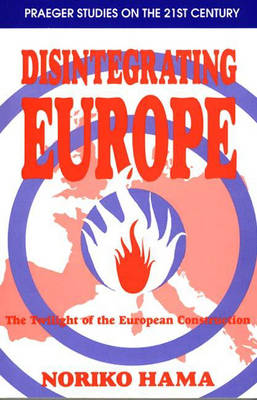Adamantine Studies on the Changing European Order
1 primary work
Book 8
Since the Maastricht Treaty of December 1991, Europe has experienced rising nationalism and regionalism—both centrifugal effects working against union—and above all scepticism toward the Union concept itself. As certain of the member states fragment, or turn inward, a turning-point in history has been reached: it is the end of the post-War Europe. As such, is it even necessary for Europe to be united at all? Is the unification ideal too large a political concept? Is the ideal of European unification dying, and have the concepts enshrined in the Maastricht Treaty become museum pieces? These are among the incisive questions asked by writer-economist Noriko Hama, in Disintegrating Europe. This approach is dramatic, readable, and compelling, and represents the first time that so qualified an economic commentator has attempted a 'big picture' view of the future of the European unification project.
Predicting that the crumbling cornerstone of unity makes the present course untenable, the author provides an alternative vision for 21st Century Europe resting on the market mechanism as seen in East Asia. This, she argues, would serve as an 'engine of growth' to replace the now-faltering engine of the newly-united Germany, which instead will continue to wrestle with its deflationary absorption of East Germany.
